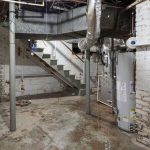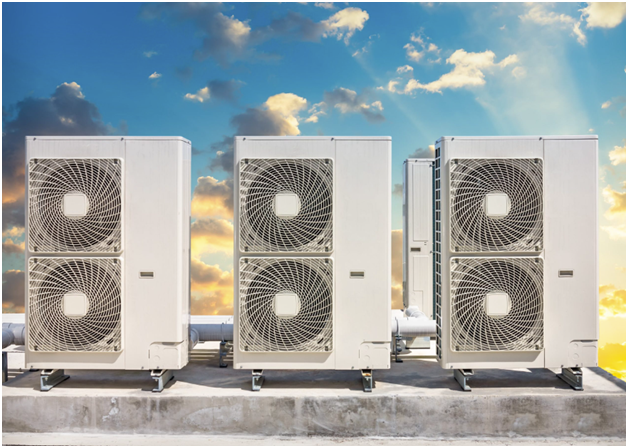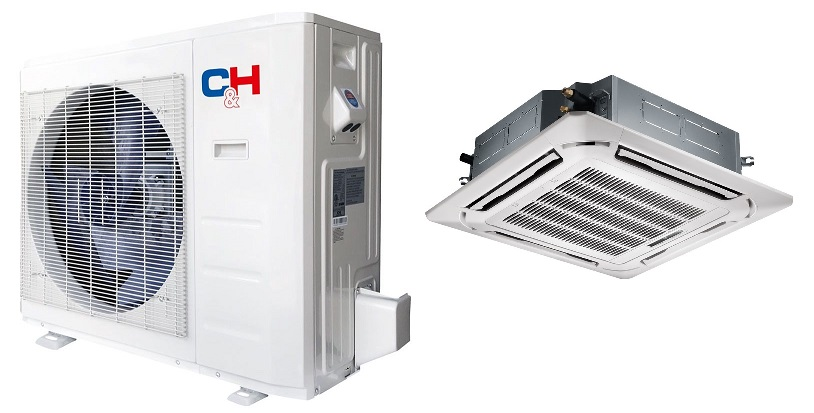Modern advancements in air conditioning systems have transformed how residential and commercial buildings manage indoor temperatures. Traditional HVAC systems, though effective, often fail to provide the flexibility and efficiency required for large or complex structures. In response to these challenges, VRV air conditioning has emerged as an innovative solution, offering superior climate control through smart zoning, variable refrigerant flow, and advanced automation.
Understanding Smart Zoning for Enhanced Comfort
One of the most significant advantages of air conditioning is its ability to create independent temperature zones within a building. Unlike conventional systems that distribute uniform cooling or heating throughout an entire space, this technology enables individual control over different rooms or sections. By allowing occupants to adjust temperatures based on specific needs, smart zoning eliminates unnecessary energy consumption while ensuring optimal comfort.
This zoning capability is particularly beneficial in commercial settings where different areas may have distinct temperature requirements. Conference rooms, server rooms, and office spaces can each be maintained at precise conditions without affecting adjacent zones. Residential applications also benefit from this system, as family members can personalise their room temperatures without compromising overall energy efficiency.
Variable Refrigerant Flow: The Key to Efficiency
At the core air conditioning lies its variable refrigerant flow technology, which dynamically adjusts refrigerant levels based on real-time demand. Unlike traditional air conditioning systems that operate at a fixed capacity, this technology modulates performance according to the actual load requirements of each zone. By only supplying the necessary cooling or heating, the system minimises energy wastage and reduces operational costs.
The efficiency of variable refrigerant flow extends beyond energy conservation. Since the system operates with varying compressor speeds rather than abrupt start-stop cycles, wear and tear are significantly reduced. This leads to lower maintenance requirements and a longer lifespan, making it a cost-effective investment for property owners seeking long-term savings.
Advanced Controls for Precision and Automation
The integration of smart controls in VRV air conditioning further enhances its functionality. These systems are designed to work with intelligent sensors, remote controls, and even smartphone applications, allowing users to monitor and adjust settings with ease. Advanced automation features enable the system to learn user preferences, optimising performance based on usage patterns and environmental conditions.
Incorporating artificial intelligence and IoT connectivity, modern VRV systems can automatically adapt to occupancy levels, external weather conditions, and time of day. This level of automation not only maximises efficiency but also ensures that occupants experience seamless comfort without the need for constant manual adjustments.
Sustainability and Environmental Benefits
As energy efficiency becomes a priority for both businesses and homeowners, the demand for sustainable cooling and heating solutions has increased. Air conditioning systems align with green building standards by significantly lowering energy consumption compared to traditional HVAC systems. The ability to regulate refrigerant flow reduces the carbon footprint of buildings, contributing to environmental conservation efforts.
Additionally, many VRV systems use eco-friendly refrigerants that comply with global environmental regulations. This commitment to sustainability makes them a preferred choice for developers aiming to construct energy-efficient buildings without compromising indoor climate control.
Cost Considerations and Long-Term Savings
While the initial investment in VRV air conditioning may be higher than that of conventional systems, the long-term financial benefits outweigh the upfront costs. Reduced energy bills, lower maintenance expenses, and extended system longevity contribute to significant savings over time. Businesses and homeowners alike can benefit from the efficiency and reliability that these systems offer, making them a worthwhile investment for those seeking superior climate control solutions.
Government incentives and rebates for energy-efficient installations may also help offset initial costs. Many regions offer financial support to encourage the adoption of sustainable HVAC technologies, further enhancing the affordability of these systems.
The Future of Indoor Climate Control
The increasing adoption of air conditioning signals a shift towards smarter and more sustainable climate control solutions. As technology continues to advance, future systems are expected to incorporate even greater levels of automation, enhanced connectivity, and improved efficiency. From AI-driven predictive climate control to integration with renewable energy sources, the evolution of these systems promises a more sustainable and cost-effective approach to indoor temperature management.
Property owners seeking to enhance comfort, efficiency, and sustainability should consider adoptingVRV air conditioning as a long-term solution. With its ability to adapt to diverse environments, reduce energy consumption, and provide precise control over indoor climates, this technology is redefining the standards of modern air conditioning systems.


 How to Get Rid of Musty Odours in Your Basement
How to Get Rid of Musty Odours in Your Basement  Roofing Repair in Harrisburg: Protecting Homes Through Quality and Care
Roofing Repair in Harrisburg: Protecting Homes Through Quality and Care  Restoring Strength and Safety with Expert Concrete Repair in Marion
Restoring Strength and Safety with Expert Concrete Repair in Marion  Locked Out? How Total Security Locksmith Handles Emergency Lockout and House Lock Services with Ease
Locked Out? How Total Security Locksmith Handles Emergency Lockout and House Lock Services with Ease  How Takara Standard Kitchens in Singapore Evolve With Every Milestone
How Takara Standard Kitchens in Singapore Evolve With Every Milestone  The Hidden Benefits of Serviced Apartments for Rent in Singapore
The Hidden Benefits of Serviced Apartments for Rent in Singapore  Top 5 Benefits of Installing Roller Blinds in Singapore Homes
Top 5 Benefits of Installing Roller Blinds in Singapore Homes  DIY Log Cabin Christmas Decorations on a Budget
DIY Log Cabin Christmas Decorations on a Budget  Why Homeowners Choose LUKA Design and Build for Timeless Architecture and Modern Function
Why Homeowners Choose LUKA Design and Build for Timeless Architecture and Modern Function 







